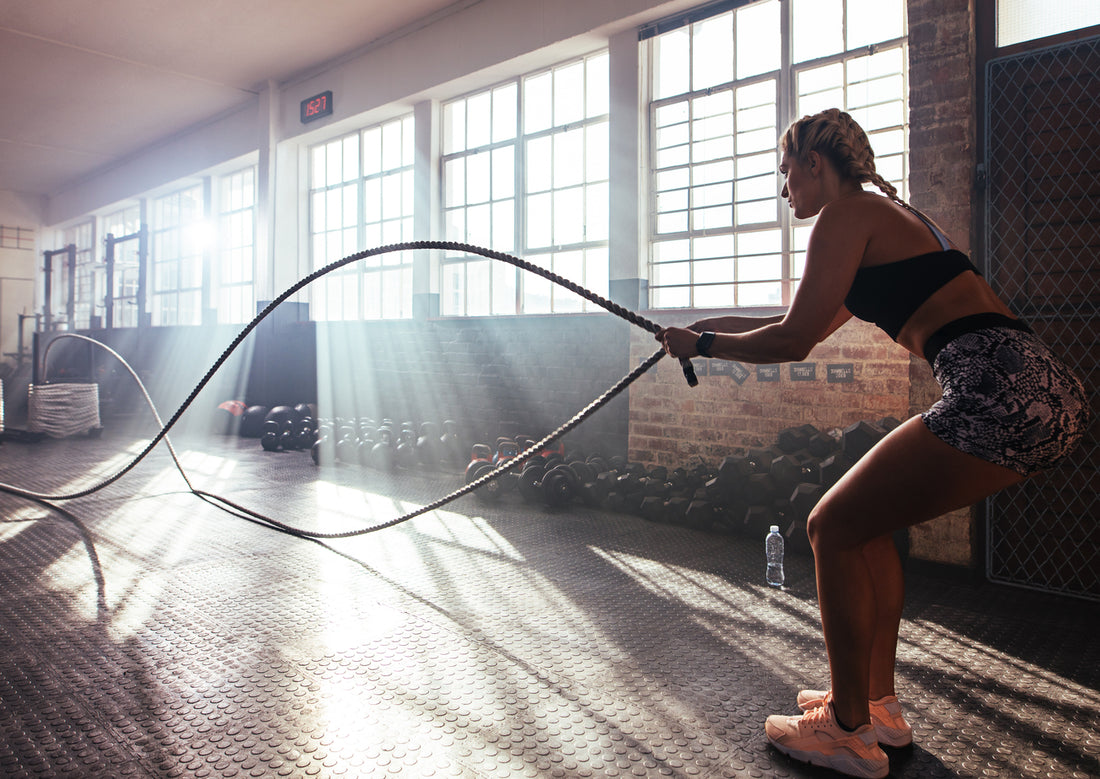As an athlete, you know firsthand that achieving peak performance, reaching personal goals, and maintaining gains are a result of the specific regimen you have developed to take care of your body: proper diet, hydration, workouts, and recovery. But did you know the importance of hydration for athletes performance? Hydration level can DRAMATICALLY impact performance? In fact, studies even suggest that athletic performance can become impaired following just a 2% loss of water weight. Hydration, however, is much more than just simply ingestion of fluids.
Why Do We Need Electrolytes for Hydration?
Hydration also involves replenishing electrolytes lost through sweating. Electrolytes and hydration are necessary for performing at your best, whether you are training for a marathon, are a cross-fitter, or going for a spin class. They are minerals that carry tiny electrical charges throughout the body, which help:
- our nerves to transmit impulses
- our muscles to contract
- our body regulate pH, metabolism, and blood pressure
Think of electrolytes like the oil in a car’s engine. They don’t fuel the engine, but are absolutely necessary to keep everything running without fail. Electrolytes help to optimize physiology, ensuring that we are alert, responsive, and healthy.
As athletes, we know our bodies well. We know when we’ve had a hard workout- oftentimes we are left with exhaustion, cramping, excessive sweating, heart palpitations, headaches or even mental fatigue. All of these can be SIGNS that we are missing key minerals. Take cramping for example: Cramping is your body’s natural, and oftentimes painful, way of letting you know that it is running on fumes, alerting you to the need for immediate electrolyte replenishment before more bodily systems are affected.
Think about this: our cardiac, nervous, digestive, and muscular systems ALL depend on adequate electrolyte levels. If not, our bodies will QUICKLY go downhill.
How Does Sweating Affect Hydration for Athletes?
Athletes tend to sweat much more than the average untrained person. When the body starts to overheat, the nervous system stimulates sweat glands, which prompts the body to begin sweating to cool the body down.
Recent studies suggest that athletes may perspire more due to increased efficiency: the body is able to sustain harder efforts at the same aerobic output level, leading to greater heat generation and more profuse perspiration.
Have you ever noticed that your sweat tastes a bit on the salty side? Every time the body produces sweat, it depletes sodium and chloride in the process, along with potassium, magnesium, and calcium to a lesser degree.
Magnesium deficiency runs rampant in the western world. It is important for muscle relaxation and cardiovascular health. Calcium, aids with proper contractility of muscle and maintaining bone health. Potassium is critical to get in proper proportion to sodium in order to regulate fluid balance, muscle contraction and nerve signalling, while chloride also assists in fluid regulation.
Frequent workouts can quickly increase the need for these nutrients and hydration for athletes. Unfortunately, many products miss the boat with electrolyte replacement...they may leave out potassium and magnesium or include insignificant amounts.
What is the Recommended Amount of Electrolytes for Athletes?
There is no one-size-fits-all answer when it comes to hydration for athletes and when boils down to the recommended amount of electrolytes for athletes to support an active lifestyle. The required amount of electrolytes for athletes depends on many factors like age, gender, weight, climate, fitness and activity level. However, when exercising under two hours, an electrolyte supplement containing 120-160mg of sodium and 50-100mg of potassium per 16-ounce serving should prove itself sufficient.
If you are an extreme distance athlete, you may need a product with a much higher concentration of electrolytes to replenish your body. Athletes in this group should aim for anywhere between 400-500mg of sodium and 400-500mg of potassium per 16-ounce serving.
When a heavy workout is on your schedule for the day, or if you plan to exercise in the summer heat, consider taking an electrolyte supplement before your workout. During your workout, electrolyte products that contain sodium will help replenish what is lost through sweat and help the body utilize carbohydrates for energy. Post workout, electrolytes will ensure you rehydrate much faster than if you were to just drink water alone- it is much easier to retain water since water is attracted to the sodium molecule.
Pay VERY close attention to your choice of electrolytes. Many popular sports drinks today are loaded with sugar, artificial flavors, colors, fillers, maltodextrin- who would want to put these ingredients into a well oiled machine? As athletes, we strive to use the cleanest, most natural products to ensure the long-term performance of our body! Sugar-free electrolytes like Adapted Nutrition’s Hi- Lyte concentrate fuel your body with the healthy nutrients it needs to perform at its best. You can easily obtain the electrolytes found in a traditional sports drink in a clean, sea mineral based supplement to help energize and recharge you for your next endeavor.
Refuel the body with fluids and electrolytes for hydration, greater performance, endurance and recovery.
If you are an athlete who cares about WHAT you put in your body, always choose a superior electrolyte supplement from a company that is passionate about using high-quality and natural ingredients – like Adapted Nutrition. They offer clean, effective electrolytes to ensure your body absorbs the nutrients to train at its best!

